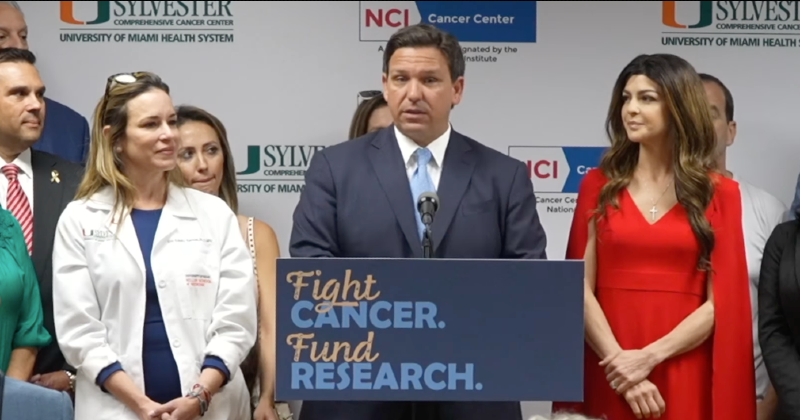This week, Gov. Ron DeSantis and Florida First Lady Casey DeSantis announced the approval of $100 million for cancer research and care in the Fiscal Year 2022-2023 Budget, a $37 million increase over the current budget.
Last year, the First Lady held a roundtable to announce the governor’s proposal of this funding for Florida’s top cancer centers to continue providing care to cancer patients.
“Cancer remains a leading cause of death in Florida, and we will continue to support those fighting this deadly disease,” said the governor. “With this funding, cancer centers will continue their cutting-edge research and provide high quality care to patients. Our family is grateful for the care that the First Lady received during her cancer treatment this past year, and we want to make quality care available for all Floridians.”
“I am incredibly proud to see this record funding secured for cancer patients, their families, and the facilities that serve them,” said First Lady DeSantis. “Early detection is a game changer in the cancer fight. I encourage anyone reading this to be proactive about your health — it might just save your life.”
“As a physician, my patients with cancer were the most courageous, and showed optimism in the face of their difficult battle,” said state Surgeon General Dr. Joseph Ladapo. “This funding is a wonderful thing. The research will identify places of discovery to make change. These discoveries are going to be how we prevent and treat cancer around the world.”
Cancer has been the second leading cause of death in Florida since 2014, which is why the Florida Consortium of National Cancer Institute (NCI) Centers Program was created. The $100 million for this program is nearly a 60 percent increase from previous years, and will go to Moffitt Cancer Center, the University of Miami Sylvester Comprehensive Cancer Center, and the University of Florida Health Cancer Center.
Florida’s three NCI-designated and NCI-seeking centers provide care to residents in different regions of the state. These centers use this funding for enhanced research projects and care to support their patients.
The state also provides funding for initiatives that support pediatric cancer research and grants for cancer research at centers that are not NCI designated.























